10th PRIMaRE Conference
The 10th PRIMaRE Conference will take place on 27th and 28th June 2023 at the University of Bath. The annual PRIMaRE conference provides a forum for exchanging the latest research & development and fostering collaborations in Marine Renewable Energy. We look forward to welcoming you to the University of Bath and enjoying an inspiring and interesting programme of talks, posters and discussions.
Further information will be published here as it becomes available.
In the meantime, please contact Prof. Jun Zang ([email protected]) or Dr. Haoyu Ding ([email protected]) for any further queries.
Conference Sponsors
We are grateful to the conference sponsors for helping to ensure the conference is open to all. We invite any potential sponsors to offer support for this conference. Display space can also be made available. Please get in touch with Prof. Jun Zang at [email protected].
Commodore (Rtd) Steven Jermy RN (Celtic Sea Power)
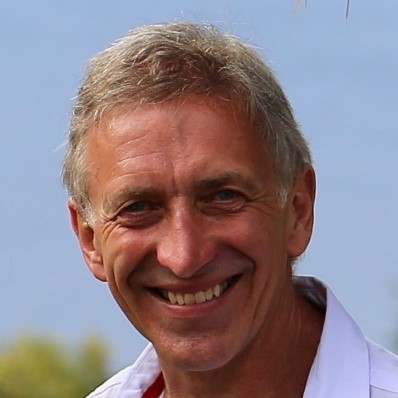
Bio: An offshore renewable energy leader, Steve is: CEO at Celtic Sea Power; Non-Executive Director on the Cornwall & Isles of Scilly LEP; represents the Celtic Sea Cluster on the UK’s Offshore Wind Industry Cluster Group. His offshore experience includes ships’ diving, fishery protection, offshore aviation, sea training and sea command. He has worked for Mojo Maritime Ltd and James Fisher Group plc, on the installation and operation of offshore wind, tidal and wave energy devices and led six major offshore renewables R&D projects. Between 2019 and 2021, he oversaw the conversion of a Cornish offshore test & demonstration zone to floating offshore wind, and its sale in 2021 to Hexicon for the installation of the first floating offshore wind project in the Celtic Sea. He now leads Celtic Sea Power, an arm’s length Cornwall Council owned company, with the mission of making floating offshore wind an economic development success for Cornwall and the Celtic Sea Region. Steve has a BSc in Applied Maths and Physical Oceanography from Bangor University, a MPhil in International Relations with International Economics from Cambridge University, is the author of Strategy for Action: Using Force Wisely in the 21st Century, and is a Fellow of the Nautical Institute and the Institute of Marine Engineers, Scientists and Technologists.
Title: An overview of the Cornwall FLOW Accelerator and PDZ project outputs, and the implications for FLOW in the Celtic Sea
Simon Cheeseman (ORE Catapult)
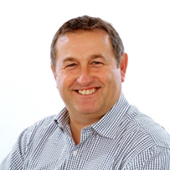
Bio: Simon Cheeseman is an experienced programme manager, having worked in both the private and public sectors. Working within the Offshore Renewable Energy Catapult’s Strategy & Emerging Technology Directorate, Simon manages the Catapult’s activities in the Southwest focusing on accelerating the deployment of floating wind into the Celtic Sea. Simon sits on the Celtic Sea Cluster Board. Prior to working with ORE Catapult, Simon was the Marine Programme Manager for the Energy Technologies Institute based in Loughborough, England. During his career Simon has held various senior manager roles with responsibility for high value technology development projects.
Title: Tidal Stream Energy: Converting the Opportunity - The TIGER Project a Review of the Achievements
Stephen Thompson (META)
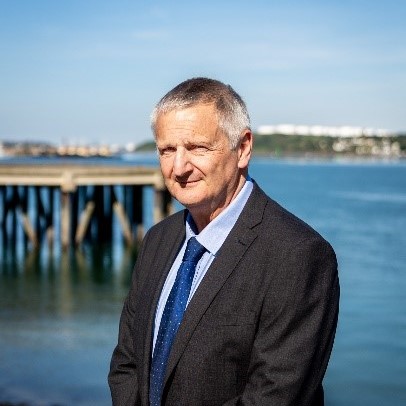
Bio: Stephen has worked in the marine industry throughout his career, from education to commercial marine aquaculture, fisheries and conservation. Immediately prior to coming to Pembrokeshire, Stephen spent some years observing the development of the offshore wind industry in the southern North Sea, and was involved in assessing and commenting on marine licence applications and EIAs for those project. As META Project Delivery Manager he is responsible for building on the success of META as Wales’ flagship test centre.
Title: Why test? What should govern the choice of a test site and testing regime?
Paul Taylor (Intertek)
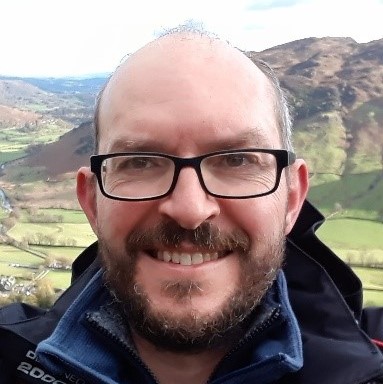
Bio: Paul is Intertek’s modelling team leader, with 25+ years’ experience in marine, coastal and estuarine environmental consultancy. After gaining his MSc in Physical Oceanography at Bangor University, he initially worked on offshore geophysical surveys, and then as a marine environmental modelling consultant for BMT and then Metoc (now Intertek Energy and Water), undertaking a varied range of hydrodynamic and water quality modelling assessments for numerous clients and projects in the water and energy sectors, including offshore wind and marine renewables. Paul worked for Geoscience Australia for about a year in 2010 as a Project Leader, looking how climate change might affect the risk and impact of natural hazards such as tsunamis and storm surge.
Title: Multi Purpose Interconnectors and Energy Islands: The next stage in offshore wind
Alfred Cotton (Mocean Energy)
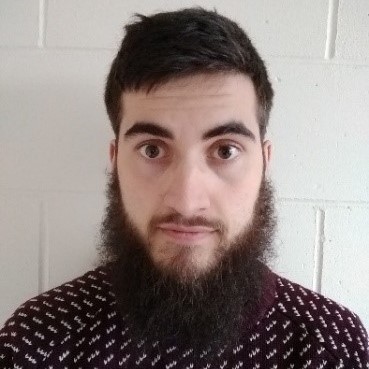
Bio: Since completing his PhD in wave energy in 2019 at the University of Edinburgh, Alfred has continued to specialise in the design and development of wave energy technology, using his experience in numerical modelling and optimisation to improve the performance of Mocean’s wave energy converters. Recent research strands include time-domain modelling and optimisation development, reinforcement learning for control, and array modelling.
Title: Research and development of wave energy technology at Mocean Energy
Prof. Deborah Greaves (University of Plymouth)
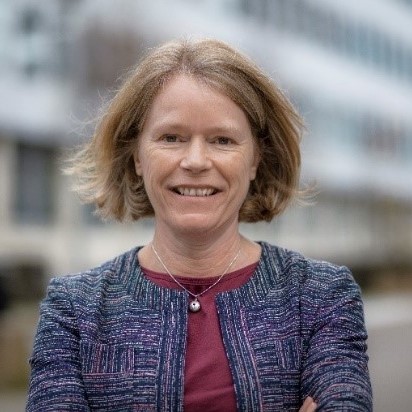
Bio: Professor Deborah Greaves is Director of the Interdisciplinary Research Centre for Decarbonisation and ORE, Director of the COAST Laboratory and was Head of the School of Engineering, Computing and Mathematics (2017-2022) at the University of Plymouth with previous appointments at the University of Oxford, UCL and the University of Bath. Her research interests include marine and offshore renewable energy, and physical and numerical modelling of wave-structure interaction. She is Director of the Supergen ORE Hub, has led many national and international research projects in ORE in collaboration with industrial and academic partners and has secured over £27 million research income. In the Queen’s Birthday Honours List, 2018, she was awarded an OBE for services to Marine Renewable Energy, Equalities, and Higher Education and in 2020, she was elected to be a Fellow of the Royal Academy of Engineering. She was appointed as a Member of EPSRC Council in 2022.
Title: Offshore Renewable Energy Research: Supergen ORE Hub
Keynote speakers for CCP-WSI Focus Group Workshop 4
Alex Argyros (BP Offshore Wind)
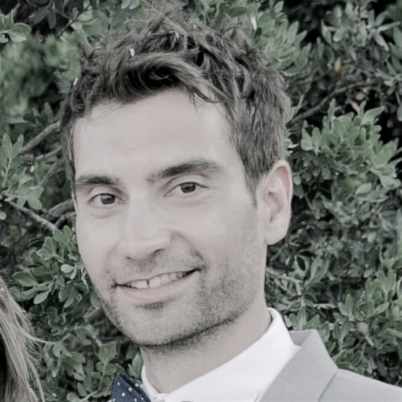
Bio: Alex is floating systems lead within the BP Offshore Wind organisation and is responsible for floating wind substructure technology. Prior to joining bp in 2021 he spent 10 years at DNV as lead naval architect and technical authority for moorings, working across O&G, floating wind, wave, tidal and solar energy sectors, where he specialised in hydrodynamics, mooring design, integrity management, and marine operations. Before that he obtained his PhD from Cambridge University on ultra-deepwater mooring dynamics and still maintains an active interest in research & development.
Title: Floating wind turbines – opportunities, challenges and numerical analysis
Francesc Fàbregas Flavià (DNV GL)
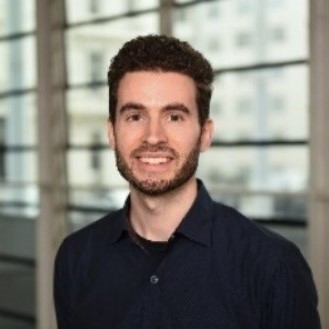
Bio: Francesc Fàbregas Flavià is a control and loads engineer at DNV GL Bristol. Before joining DNV GL, Francesc worked as a Lecturer in the Fluid Mechanics section in the department of Civil and Environmental Engineering of Imperial College London. His research focuses on advanced hydrodynamics and on the dynamics of floating structures. Francesc holds an MEng degree in Mechanical Engineering from Universitat Politècnica de Catalunya (UPC, ETSEIB) and an MSc in Renewable Energy Engineering from Cranfield University. After completing his MSc, he worked as a research engineer in the Ocean Systems Test Laboratory of Cranfield University where he participated in the design and testing of small-scale wind and wave energy converter prototypes. He then moved to the LHEEA laboratory of Ecole Centrale de Nantes where he undertook his PhD on the hydrodynamic interactions in large clusters of wave energy converters.
Title: Numerical Modelling for floating Offshore Wind Turbines
Matt Lewis (Intertek Water & Energy)
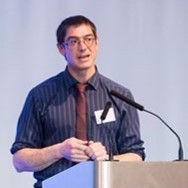
Bio: Dr. Matt Lewis is a senior consultant with Intertek, water and energy team. Matt uses hydrodynamic models to map the marine renewable resource, and improve water quality of our rivers and coasts. He has over a decade of academic experience, including previously having held a EPSRC fellowship in marine renewable energy, and has published over 50 peer-reviewed scientific papers with a H-index of 30.
Title: Better ocean characterisation needed for marine renewables and offshore aquaculture: coupled wave-current mean flows
Jonathan Hodges (Wave Energy Scotland)
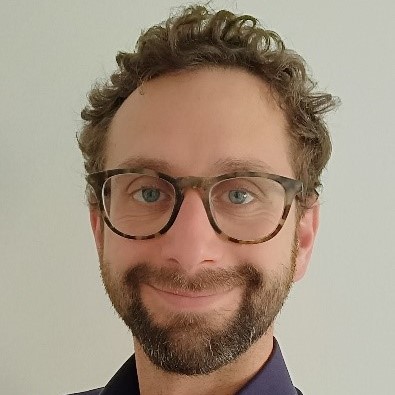
Bio: Following an early career in the aerospace industry, developing and testing Rolls-Royce turbofan engines, Jonathan moved to ocean energy sector where he gathered innovation, resource assessment and tecno-economic analysis experience. In his role as Innovation and Strategy Manager at Wave Energy Scotland (WES), he aims to identify innovation opportunities, influence research agendas and develop funding strategy to help the sector deliver cost competitive wave energy technologies. Jonathan is involved in global collaboration activities to develop technology assessment tools and processes, deliver consensus on performance metrics, and seek technology transfer opportunities to advance the sector towards commercialisation.
Title: WES driving innovation and cross-sector collaboration

